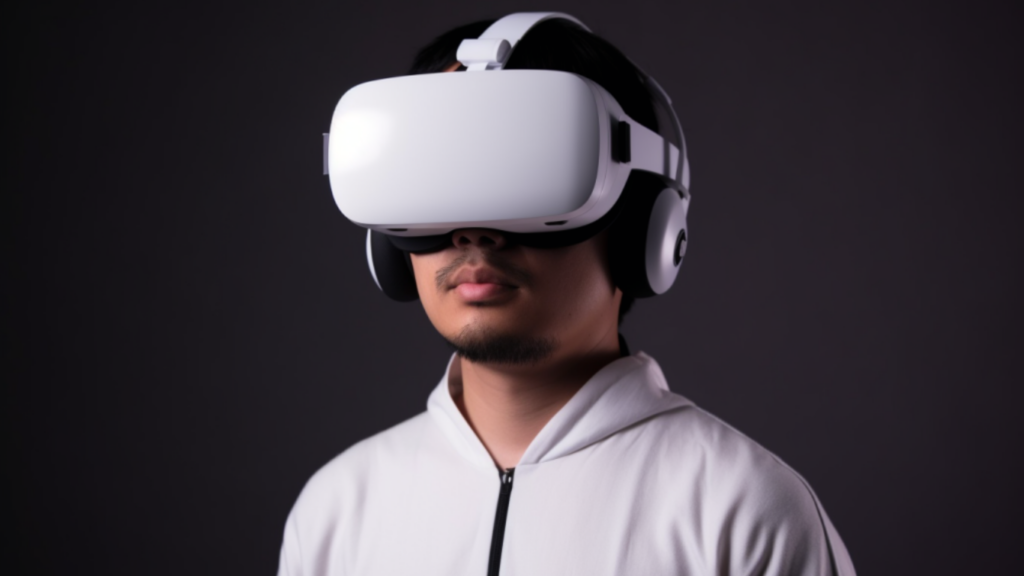What Are Virtual Reality Casinos?
Virtual reality casinos are digital gambling platforms that use VR technology to create immersive, 3D environments. These platforms simulate real-world casinos, allowing players to experience interactive and lifelike gaming from their devices.
How They Differ From Traditional Online Casinos
Virtual reality casinos stand out by offering immersive experiences unavailable in traditional online casinos. Traditional platforms rely on 2D interfaces, while VR casinos recreate physical casino environments in a 360-degree format. Players can navigate the casino floor, interact with avatars, and observe games in progress as if they were physically present.
In VR casinos, players use compatible headsets and controllers to engage with the environment, while online casinos depend on mouse and keyboard interactions. For example, blackjack tables in VR allow players to pick up cards using virtual hands, which isn’t possible on web-based platforms.
Another distinction lies in social interaction. VR casinos provide real-time communication with other players and dealers via voice chat, simulating face-to-face interactions. Traditional platforms, by contrast, typically rely on text chats or pre-programmed responses.
- Realistic Environments: VR casinos replicate detailed casino settings, complete with tables, slot machines, and ambient sounds. For instance, players can hear chips clinking and dealers shuffling cards in games like poker.
- Avatars and Personalization: Players create custom avatars to represent themselves. These avatars can move, gesture, and sit at tables, creating a lifelike presence on the casino floor.
- Social Interaction: Built-in voice and motion tracking enhance communication, allowing players to converse and interact naturally with others.
- Cross-Game Accessibility: VR platforms offer a variety of games, such as slots, poker, and roulette, within the same immersive environment. Players can seamlessly switch between games without leaving the casino interface.
- Use of VR Devices: VR headsets, like Oculus Quest 2 or HTC Vive, provide high-definition visuals and motion tracking. This hardware enables more accurate and intuitive interactions within VR casinos.
Virtual reality casinos blend advanced technology with traditional gambling, creating a unique gaming destination that caters to modern players.
The Technology Behind Virtual Reality Casinos

Virtual reality casinos rely on a combination of sophisticated hardware and cutting-edge software to deliver immersive and interactive gambling experiences. These technologies enable realistic environments and seamless gameplay.
VR Hardware and Software Requirements
VR casinos use advanced hardware like headsets, motion controllers, and haptic devices to engage players. High-performance VR headsets, such as the Oculus Quest 2, HTC Vive, or PlayStation VR, offer high-definition visuals and wide fields of view. Motion controllers provide natural hand movements for actions like placing bets or interacting with virtual objects.
Powerful software platforms make immersive experiences possible. VR casinos utilize game engines, like Unreal Engine or Unity, to develop realistic 3D environments. These engines support detailed graphics, lifelike physics, and interactive elements. Stable internet connections and compatible devices running updated operating systems ensure that users access these platforms seamlessly.
Advancements in Immersive Gaming Technology
Increased processing power and technological breakthroughs have elevated the VR casino experience. Realistic avatars with enhanced facial expressions and gestures emulate human interactions, making social gaming more engaging. Improved AI algorithms enable adaptable dealers and game systems, creating more dynamic gameplay.
Haptic feedback devices and motion trackers simulate real-world sensations, such as the feel of poker chips or dice rolls. Spatial audio enhances the immersive atmosphere, allowing players to hear environmental sounds and conversations more naturally. Integration with blockchain technology allows secure transactions in VR casinos, adding transparency and reducing fraud risks.
Benefits of Virtual Reality Casinos
Virtual reality casinos offer significant advantages over traditional online platforms. These benefits range from an enhanced user experience to improved accessibility, revolutionizing how players engage with casino games.
Enhanced Player Experience
Virtual reality casinos immerse players in lifelike environments, fostering engagement. Players navigate detailed casino floors, handle virtual cards, or spin roulette wheels using VR controllers, delivering a tactile, realistic gaming experience.
High-definition visuals and spatial audio further amplify immersion, replicating the ambiance of physical casinos. For example, ambient background noises, such as chatter or the sound of slot machines, heighten the realism.
VR technology also provides seamless gameplay across multiple games like:
- poker
- blackjack
- slots
without compromises in quality. Haptic feedback incorporated into devices enhances sensations during gameplay, enriching the overall user experience.
Social Interaction in Virtual Environments
VR casinos bring social elements to remote gambling. Players connect through customizable avatars and communicate in real-time using voice chat, simulating in-person interactions. For instance, gamers at a poker table can engage in discussions or react during gameplay, enhancing camaraderie and competitiveness.
Advanced AI algorithms improve these virtual social experiences by enabling NPC (non-player character) avatars to simulate authentic interactions when player availability is limited. These features bridge the gap between traditional land-based casinos and online platforms, fostering a vibrant community.
Accessibility and Convenience
Access to virtual reality casinos simplifies participation in gambling. Players enjoy top-tier experiences from the comfort of their homes, avoiding travel or other logistical constraints. VR casinos operate 24/7, accommodating various time zones and schedules.
Unlike physical casinos, these platforms enable users to switch between games effortlessly. Additionally, many platforms integrate secure payment systems and blockchain technologies, ensuring safe and transparent transactions. Compatibility with a range of devices, such as Oculus Quest 2 or HTC Vive, enhances accessibility, meeting diverse player needs.



 Veronique Godinezie – Entertainment & Gambling Trends Writer
Veronique Godinezie is an expert in the ever-evolving relationship between gambling and entertainment, serving as a Gambling Trends Writer at Gamble Wise Roll. With a keen interest in how gaming intersects with pop culture, esports, and digital innovation, she explores the latest trends that are redefining the gambling experience. From interactive betting experiences and skill-based gambling to the rise of virtual casinos and celebrity-endorsed gaming platforms, Veronique provides engaging and forward-thinking content that keeps readers informed about the future of gambling. Her storytelling brings an exciting and dynamic perspective to Gamble Wise Roll, offering insights into how the industry continues to evolve in the digital age.
Veronique Godinezie – Entertainment & Gambling Trends Writer
Veronique Godinezie is an expert in the ever-evolving relationship between gambling and entertainment, serving as a Gambling Trends Writer at Gamble Wise Roll. With a keen interest in how gaming intersects with pop culture, esports, and digital innovation, she explores the latest trends that are redefining the gambling experience. From interactive betting experiences and skill-based gambling to the rise of virtual casinos and celebrity-endorsed gaming platforms, Veronique provides engaging and forward-thinking content that keeps readers informed about the future of gambling. Her storytelling brings an exciting and dynamic perspective to Gamble Wise Roll, offering insights into how the industry continues to evolve in the digital age.
